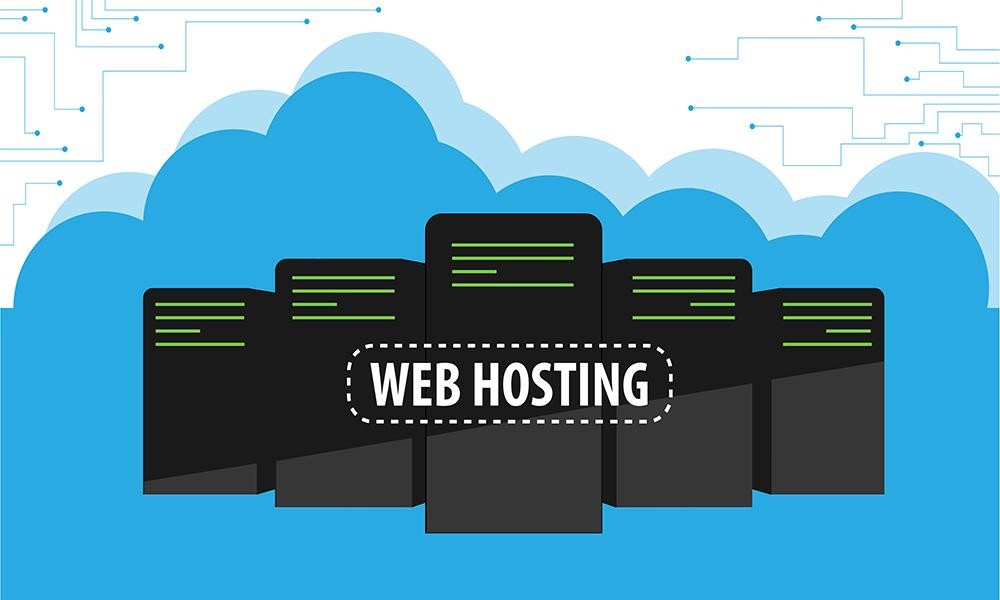
What is hosting and why do you need it?
What is hosting and why do you need it?
Hosting is what makes your website visible on the internet. Hosting is simply where you store the content of your site: your articles, images, videos. These contents should have an address on the web so that people can visit your site. We can call this address your website name, for example www.yoursitename.com. Hosting here allows people to see your site when they click on it. So why is hosting important? Because hosting determines the speed and security of your site. Good hosting ensures that your site is fast and secure. If the hosting is not good, your site will run slowly and there will be security problems. You should be careful when choosing hosting for your website. Proper hosting is critical to the success of your website.
What should we pay attention to when choosing hosting?
Choosing the right hosting provider for your website is one of the cornerstones of your online success. But this is a somewhat complicated process. There are many options, but how do you find the one that best suits your needs? Here's what to look for when choosing a hosting provider that will offer the performance, security, support, and value your site needs.
Performance: Your Site's Engine Power Performance is critical to your user experience and search engine ranking. Fast hosting ensures your site loads faster. Server specifications have a direct impact on your site's performance. Look for a hosting plan that has the right resources for your needs; In this regard, features such as processor power, RAM and disk space will be decisive.
Security: Digital Protector
Your site's security is key to gaining the trust of your visitors. Offering security measures like free SSL certificates, daily malware scans, and DDoS protection, the hosting provider provides peace of mind for both you and your users. These features strengthen your security in the digital world.
Price: Quality within your budget Price is often the first factor looked at, but be careful; Cheap hosting plans can cause more problems in the long run. When choosing hosting, consider the price as well as the value offered. Also, be aware of hidden costs such as renewal fees. Finding the best price starts with research.
Customer Support: 24/7 support Having a support team you can turn to whenever you run into any problem is a lifeline in the hosting world. Various support channels 24/7 and a comprehensive knowledge base are factors that determine the quality of customer support.
Uptime Guarantee: If your hosting provider offers a 99.9% uptime guarantee, that means your site will be online most of the year. This is very important for the credibility of your site.
Backup Services: Your Insurance Against Data Loss Data loss is the dreaded part of every website owner. Automatic backups are one way to avoid this fear. Hosting that offers daily or weekly backup options helps you restore your data in the event of a potential problem.
Choosing hosting takes some research and thought, but the right choice can create a foundation that will support your site's long-term success. Take your time to choose the service that best suits your needs. Choosing the right hosting is the first step to strengthening your online presence.
What is the Importance of an SSL Certificate?
SSL Certificates protect your website and users' data by encrypting it. Thus, information is transmitted securely. These certificates appear as “https://” at the beginning of your site and show visitors that your site is secure. Secure sites are more preferred by users, which increases trust in your site. Additionally, search engines like Google rank sites with SSL certificates higher, which provides a huge SEO advantage. In short, SSL certificates increase both the security and visibility of your site.
Services provided by Hosting Companies
Hosting companies other than web hosting services; It offers services such as domain sale, domain transfer, ready site sale, SSL certificate sale, server maintenance and optimization. Depending on the type of hosting package you purchase, some of the above services may be included with your purchase. Packages that include server maintenance and optimization should clearly study the limitations of this service before purchasing to avoid future inconvenience.
Domain vs. What are the differences between hosting?
A domain is the unique address of your website. This address allows users to access your site by typing it into their browser. In a way, it's like your website name and mailing address in the digital world. For example, "www.example.com" is a domain name, and when you type this name into your browser, you will be redirected to the corresponding website. As we mentioned above, hosting is where your website's files, data, and content are stored. This can be a physical server or a cloud-based resource. Hosting makes your website visible and accessible on the internet. When you want to create a website, you need a hosting service to store your content and present it to visitors. Domain and hosting are closely related but have different functions. When the domain refers to the name and address of your website; Hosting is the physical area where the files and data of this site are stored and managed. Both are necessary elements for a website to have an online presence.
How to ensure hosting security?
Hosting account - The most important element that is necessary for a website to continue its broadcasting life without interruption. Therefore, security must be ensured at a high level. To ensure the security of your hosting account, it is important to pay attention to the following points.
• Use passwords that are difficult to guess. Create your passwords using numbers, uppercase letters, lowercase letters, punctuation and special characters.
• Do not use the same passwords you use for your social media and email accounts on your hosting account. Learning these passwords, which are easier for malicious people to obtain, also means learning your hosting account passwords.
• Set different passwords for all areas in your hosting account, such as password-accessible databases.
• Periodically update passwords for all encrypted areas in your hosting account.
• Use the on-screen keyboard when entering a password for your hosting account.
• Record the dates you log into your hosting account and the dates you edit files. Check your system logs to see if your account has been accessed or edited without your knowledge.
• Do not set "chmod 777" to any file on the system unless necessary. The ideal chomod value is “644” and “755”.
• Only use plugins and modifications from trusted sources. Do not install software of unknown origin on your hosting account.
• Make sure you have antivirus software installed on your computer. Prevent malware that you might accidentally download onto your computer from accessing your data, such as passwords.
Which Hosting Company Should I Choose?
More important than determining the features of your chosen hosting package is "which hosting company should I choose?" is a question. Hosting service is usually paid annually or in some packages monthly. Like any service, hosting service has a certain cost to the company that provides the plan. Prices are close to each other in many of the leading companies in the sector. For this reason, it is likely that the hosting plan is sold at prices that defy commercial logic. There is a risk of not being able to use that service until the end of the service period. Because many of the new companies entering the sector are trying to provide services below their cost to increase their customer base. If they fail to reach their target number of customers, they quietly disappear from the sector as they cannot afford the data center costs. In this case, you will no longer be able to access your sites files. This means that both the money you paid and the effort you put into your site are wasted. For this reason, before deciding on the price of the hosting service, you should pay attention to how long the company you are buying has been in this field. Another factor to consider when choosing a hosting company is the company's after-sales service policy. Because websites are structures that can be accessed 24/7 and therefore technical problems with the server can occur 24/7. A hosting company that only provides technical support during business hours may cause you to lose visitors because they will provide late support during off-hours issues.
Ultimately, choosing the most suitable host for your website requires detailed research and comparison. When choosing, look beyond short-term cost savings and consider your long-term needs and goals. Remember that the quality and success of your website depends on the right hosting choice.






